Why London needs a gobby mayor
- Published
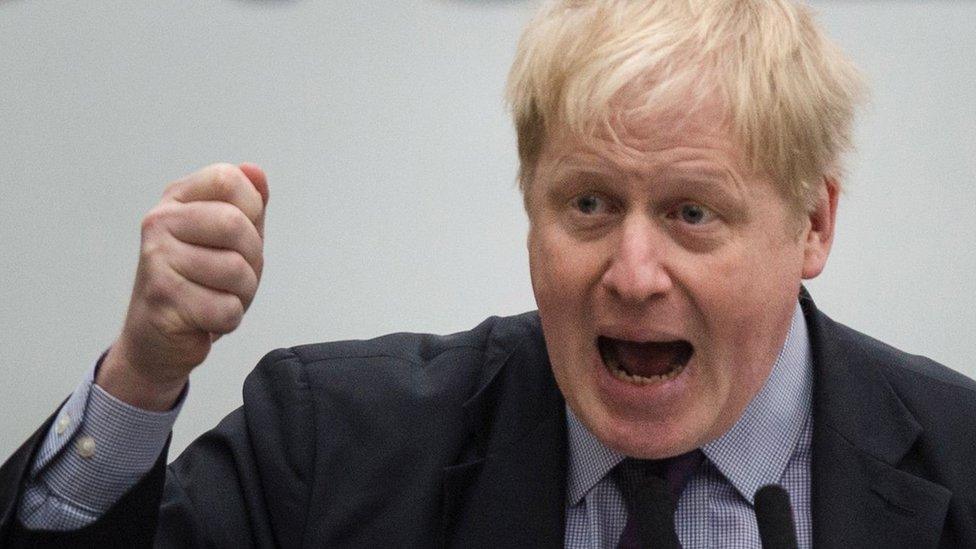
One of the things I've learnt over the last 25 years as a journalist is that a lot of people really hate London - even some of those who live in it.
As a presenter in regional news for London and the South East of England, I used to receive green ink postcards of protest whenever I referred to Southall as being in west London. The author - and, unhelpfully Royal Mail - insisted it was in Middlesex, a county abolished 40 years ago in belated acknowledgement of London's growth.
The same is true to the east, in Romford where people insist they're in Essex, and in Bromley where they'll tell you, my aunt included, that it's not London but Kent.
To be fair, it can be confusing. Surrey, for instance, continues to be administered from County Hall in Kingston, even though that is now a London borough.
If some Londoners are not exactly proud of belonging, many outside are downright hostile. They dislike the way London seems to dominate politics, media and the economy.
It's hard to argue that house prices elsewhere in the UK haven't been distorted by the capital. In my native Devon, demand has been stoked by people selling up in London and heading west.
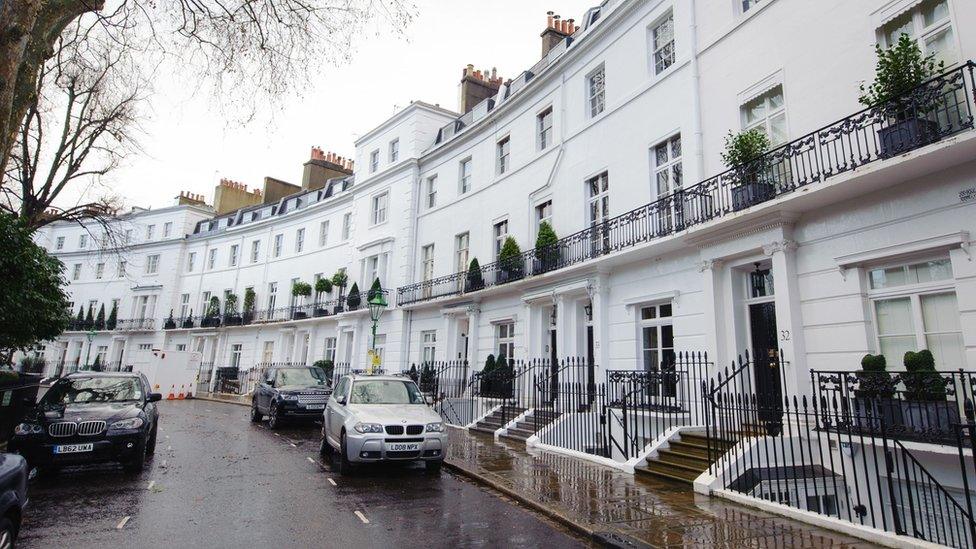
Many blame London house prices for distorting the property market across the country
A report by Knight Frank, external, the real estate consultancy, said that in the two years to June 2013, some 49% of prime new-build in central London was sold to people not residing in the UK.
In 2013 it was estimated that in property terms London's top 10 boroughs were worth more than all of Northern Ireland, Scotland and Wales combined.
According to The London Plan, external, the mayor's development strategy, the UK's capital city generates about 17% of the country's wealth (more than £565bn).
It's not a popular thing to say, but tax receipts help subsidise less prosperous parts of the UK. The Centre for Economic and Business Research suggests London makes a net contribution to the Treasury of £34bn, external. (To which the riposte is that we might be able to generate more of the country's wealth outside of London and the South East of England if the capital didn't lure away so much of the talent born elsewhere in the UK).
Mayoral power
Little wonder, then, that being elected mayor of London has, for the last 16 years, been regarded as a passport to influence. The four previous London elections have been more talked about nationally than any other local council election, and not merely because the national media is concentrated in London.
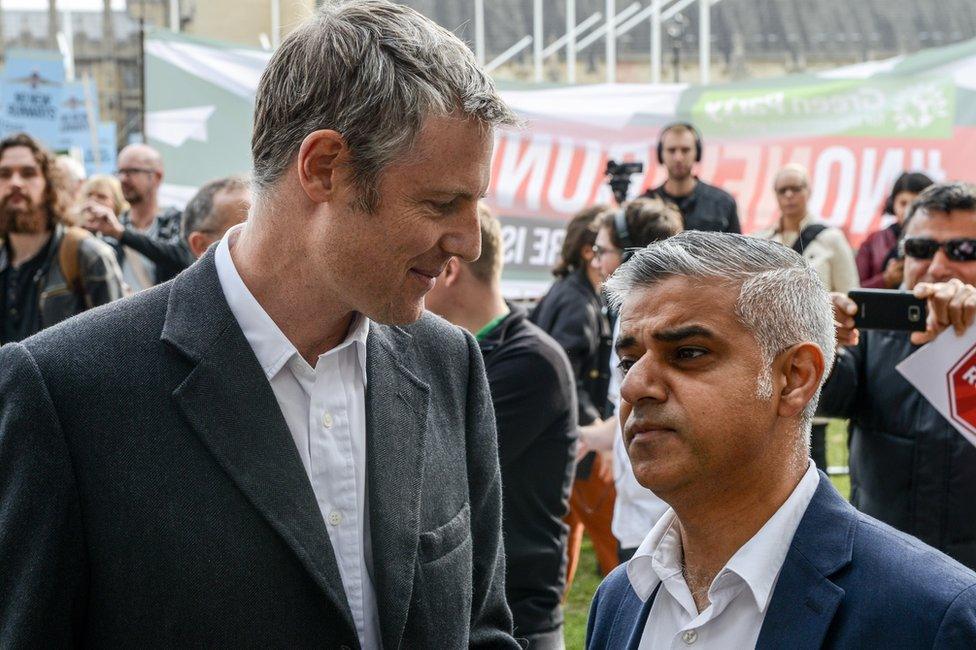
Zac and Sadiq - headline grabbers?
Last week in the lift, I bumped into a former colleague. Probably the best political journalist on the London beat, he was lamenting covering his fifth mayoral election.
One factor, of course, is the absence of Ken or Boris. Sadiq (Khan) and Zac (Goldsmith) lack the name recognition and headline-grabbing appeal of their predecessors as Labour and Conservative candidate.
London mayoral election: The contenders
Celebrity doesn't equate to effectiveness, of course, but it gets you noticed and that tends to force central government to respond.
Ever since I first interviewed Rudy Giuliani as he signed Halloween pumpkins during his 1997 re-election bid, I've been visiting New York and following politics there, a city where no vote-raising photo opportunity is ignored.
New Yorkers are savvy enough to know that the most colourful mayors aren't always the most effective.
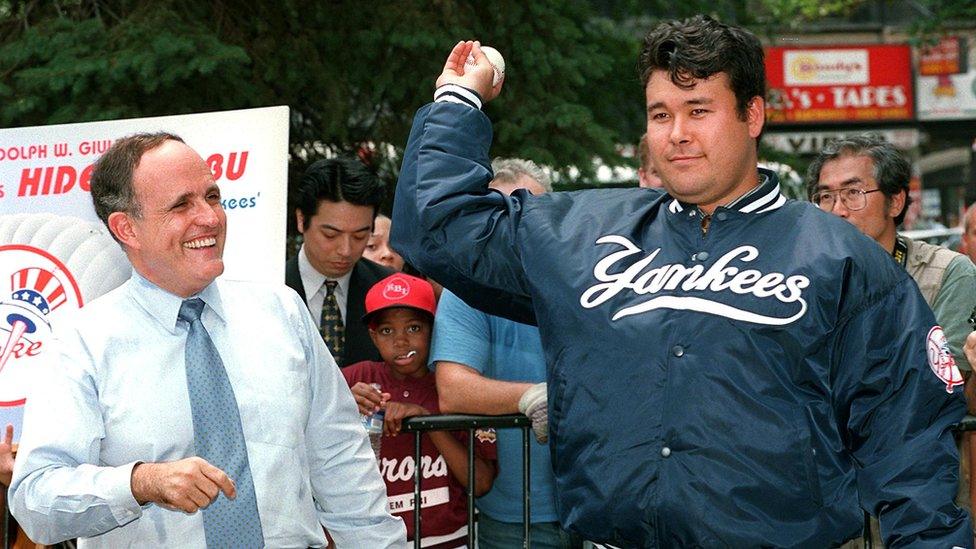
Rudy Giuliani (left) wasn't shy of a photo opportunity
Michael Bloomberg, who's just abandoned plans to run for the White House, external, achieved results in an uncharismatic, un-showy way.
In the early 1990s, David Dinkins was more capable than people thought at the time, but sandwiched between the mayoralties of Ed Koch and Rudy Giuliani, his was destined to be forgotten.
Headline-grabber needed
London, though, has its problems. It needs a gobby, headline-grabbing mayor because in such a centralised political system, it's the only way to get anything done.
Even then, and even if the incumbent government's politics are more or less the same, that's no guarantee of success.
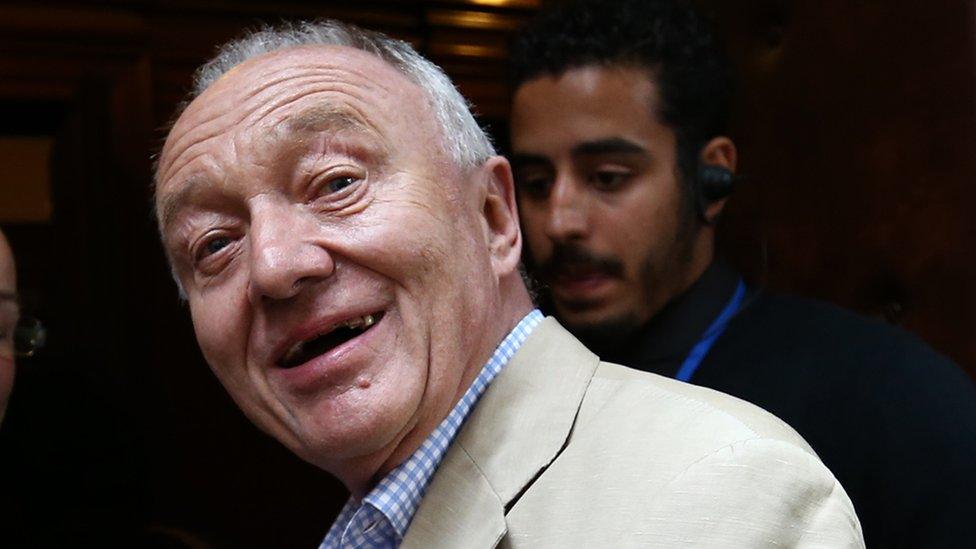
Ken Livingstone - a recognisable name and face
Ken Livingstone, whilst technically an independent in his first term, had a constructive relationship with Tony Blair, but the public-private partnership (PPP) financing model for the Underground was imposed despite the mayor's opposition because Gordon Brown's Treasury wanted it to be.
The chaos and failure that followed had been widely predicted, but the mayor of London's electoral mandate to do something different counted for nothing.
City mayors in the United States can be dull yet still effective because real political power is dispersed; Washington's political reach is nothing like as powerful as Whitehall's.
So the London mayor has limited power; and more than a decade after city-wide government was restored (having been removed in 1986 with the abolition of the Greater London Council, successor to the London County Council), neither Ken Livingstone or Boris Johnson was able to do much to close the gap between London's rich and its poor.
Labour city?
The New Policy Institute estimates that 27% of Londoners live in poverty, external after housing costs are taken into account, compared with 20% in the rest of England.
Still, the political parties are fighting for all their worth to secure the lease on City Hall. A Conservative peer in London, who knows a thing or two about elections in the capital, told me he doubts Zac Goldsmith will be taking up residence there.
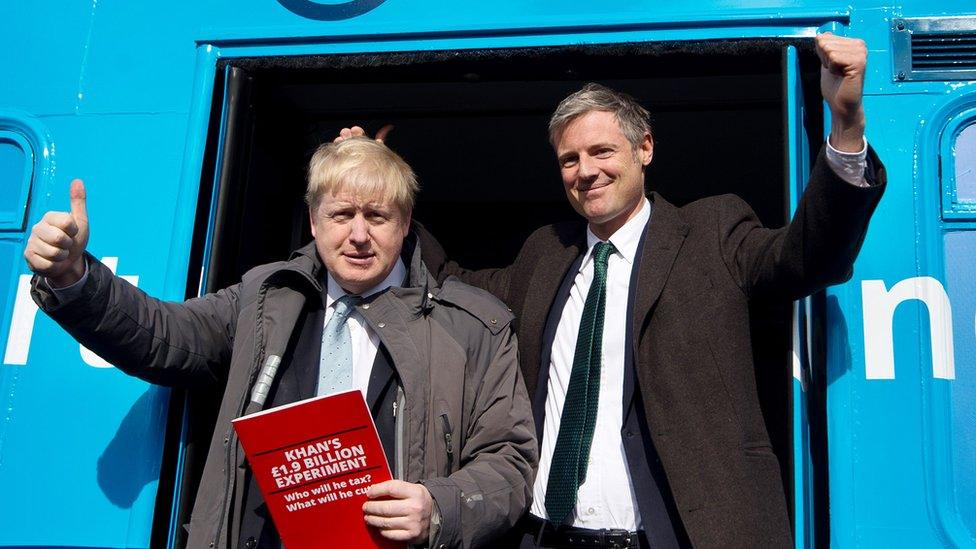
Channelling Boris's star power? But Zac Goldsmith still trails Labour in the polls
The disadvantage he is under is not of his making. In the last 20 years, London has become an increasingly Labour city.
The trend pre-dates Tony Blair's 1997 landslide, a point when the Conservatives were so unpopular that it also opened up an opportunity for the Liberal Democrats to establish themselves in London, a city where they had tended to be electorally weak.
David Cameron's success elsewhere in England at last year's general election wasn't matched in London, despite Labour's failure to snatch some of the Tories' most marginal seats.
It isn't the marginal seats, though, that suggest Labour is dug in; it's the way it has held on to a swathe of seats in outer north and west London that in the days of previous Conservative governments would have been Tory.
'Get the vote out'
The mayoral election, though, isn't like a Westminster election. Voters rank the candidates in order of preference.
So far, no one has won outright by being the first choice of Londoners. In 2012, Boris Johnson's lead over Ken Livingstone in the first round was less than four percentage points; he edged ahead by being the second choice of voters whose preferred candidate had been eliminated.
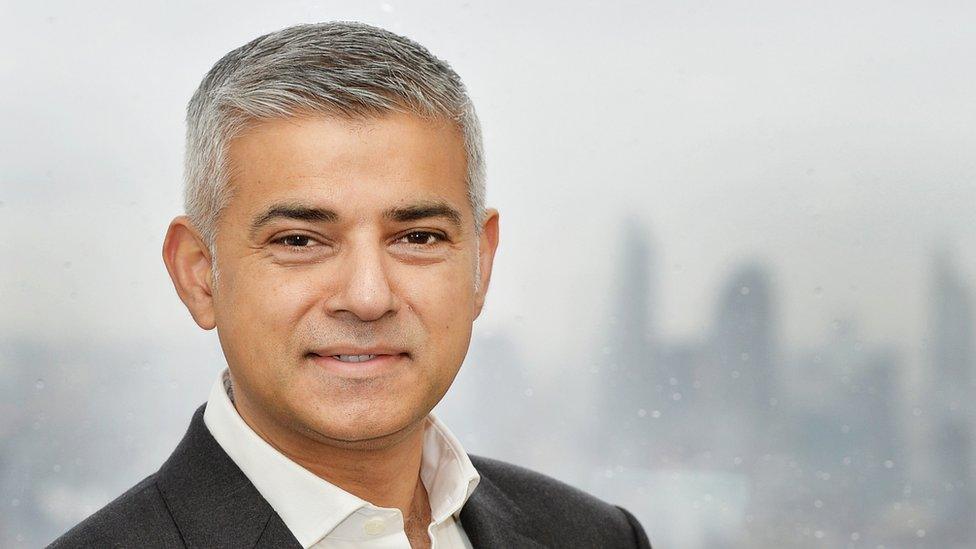
Sadiq Khan - the bookies' favourite
Supporters of the Lib Dems, Greens and UKIP may well make Zac Goldsmith their second preference after their own party mayoral candidate (he's socially liberal, environmentally aware, and eurosceptic) but that still may not be enough to counteract Labour's "get the vote out" operation. Even with Mayor Boris on the ballot paper, turnout in 2012 was only 38%.
Labour may be running City Hall for the next four years up until the general election, giving the party a useful power base. Yet the party would be unwise to read too much into that.
London's political value is set to diminish. The reduction in the number of parliamentary constituencies, as well as making the number of voters more equal between them, means that London will elect 68 MPs at the 2020 general election, not 73.
Five fewer may not sound like much, but for a Labour Party scrabbling to assemble a parliamentary majority, it just might make all the difference.
Come 2020, there could be another group of people joining the chorus of London-haters: Labour supporters elsewhere in the UK.
- Published1 April 2016
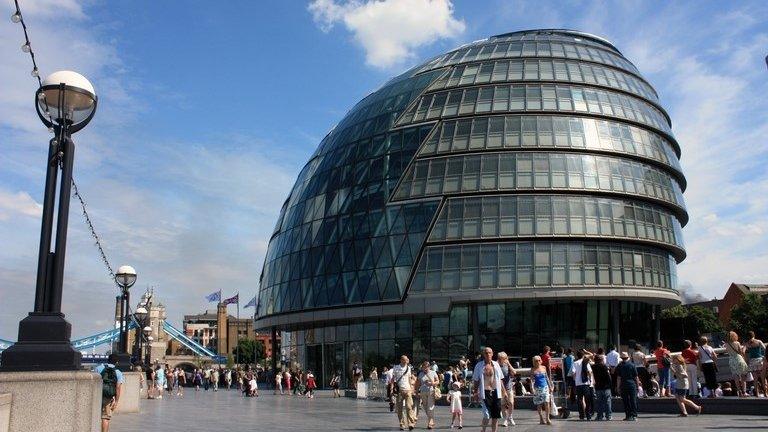
- Published29 February 2016
